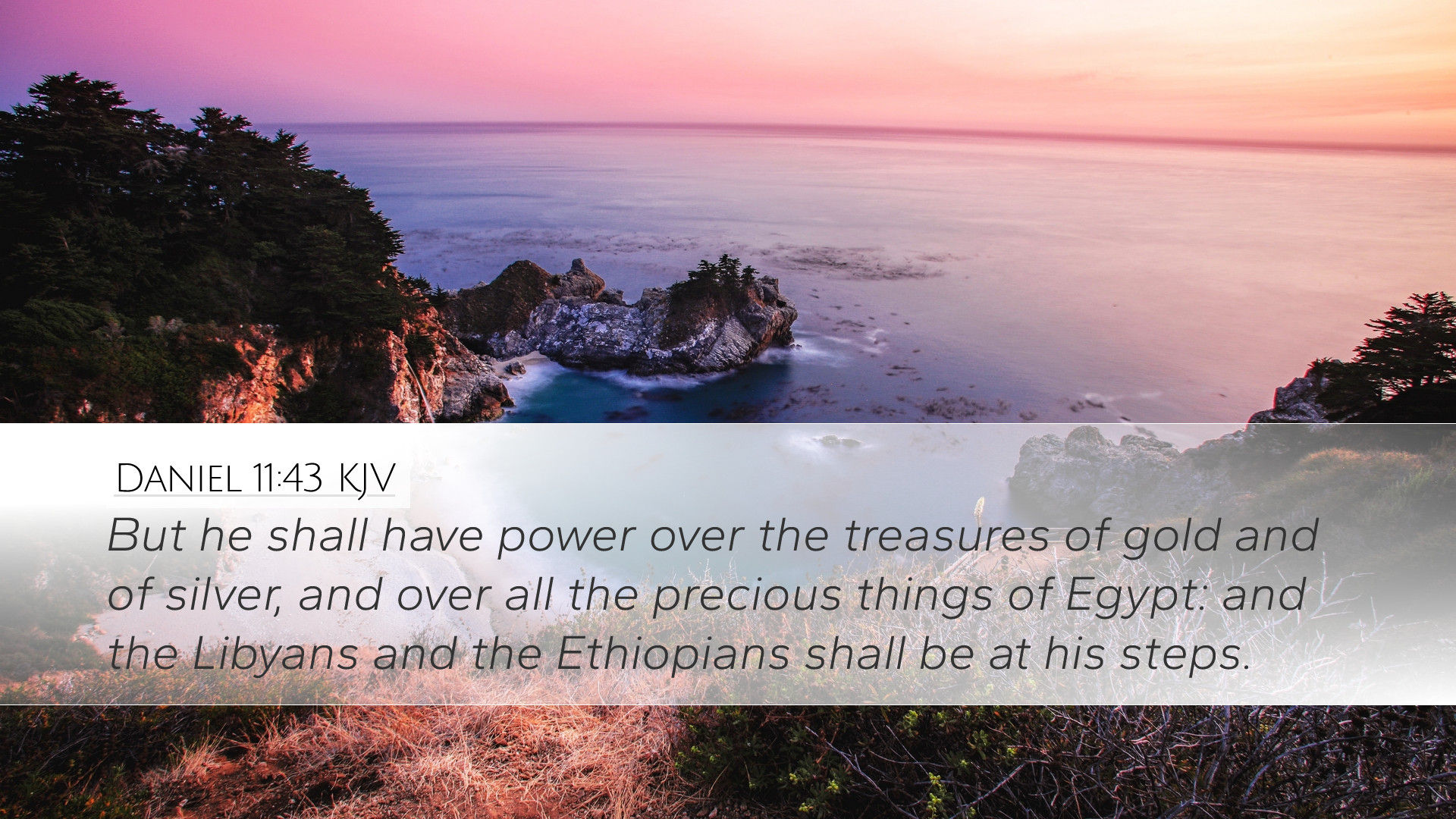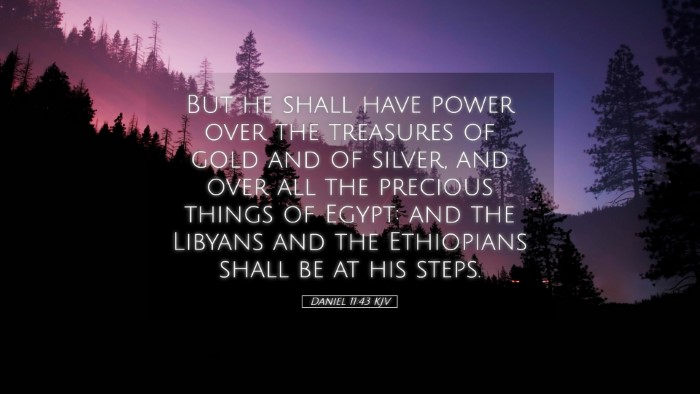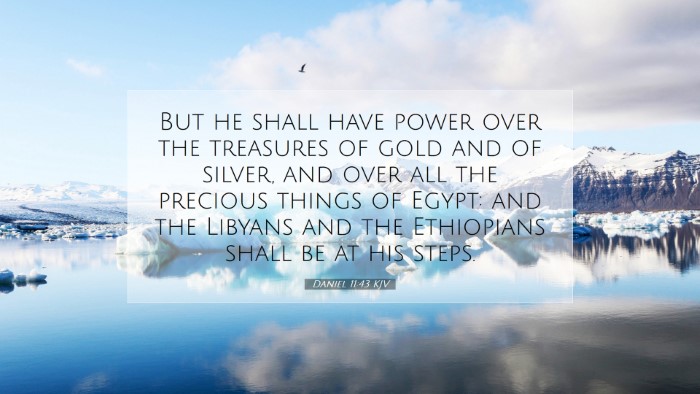Commentary on Daniel 11:43
Daniel 11:43 states: "But he shall have power over the treasures of gold and of silver, and over all the precious things of Egypt: and the Libyans and the Ethiopians shall be at his steps." This verse is part of the prophetic narrative of Daniel, detailing the activities of the king of the North, often interpreted as a symbol of antagonistic powers against God's people. Below, we will explore insights gathered from various public domain commentaries including those of Matthew Henry, Albert Barnes, and Adam Clarke to delve deeper into its meaning.
Contextual Analysis
The larger context of Daniel 11 includes a detailed account of the conflicts between various kingdoms, focusing primarily on the history of the conflicts between the Seleucid and Ptolemaic empires. Matthew Henry emphasizes that the details of these power struggles reveal the sovereignty of God over historical events and leaders. The verse indicates a time when a powerful ruler—a figure who has garnered significant resources—will exert dominance over regions previously influential in the ancient world, particularly Egypt.
Historical Interpretation
Albert Barnes offers insight into the specificity of the treasures mentioned in the verse. He notes that Egypt was renowned for its wealth, particularly in gold and silver, making it a coveted region for any aspiring world leader. The king referenced here is often viewed as a figurative representation of forces that often oppose divine authority and seek to establish human kingdoms through material wealth and military might. In this context, the treasures symbolize both the lure of materialism and the fragility of human power amidst divine providence.
Theological Reflections
Moving beyond mere historical interpretation, Adam Clarke offers a theological reflection on the implications of this verse for today’s readers. He posits that such prophecies should be understood in the light of the ongoing spiritual struggles faced by God’s people. This verse reminds believers that, while men may amass wealth and exercise power, ultimate authority belongs to God. The phrase “power over treasures” is not merely about economic dominance; it illustrates a deeper spiritual conflict where material attainments become a means through which evil influences seek to distract and lead astray the faithful.
Exploration of Terms
To better understand this passage, it is helpful to break down key terms:
- Power: This term reflects the authority and control the king will wield. It suggests not only political strength but also the influence over economic resources.
- Treasures: Represents both literal wealth and the broader implications of materialism in society. The access to “treasures” symbolizes corrupting influences that can lead to moral decay.
- Egypt: Often representative of bondage and sin in Scripture, Egypt serves as a symbol of worldly entanglement that believers must navigate in faith. It reminds readers of the constant temptation to prioritize earthly wealth over spiritual integrity.
- Libyans and Ethiopians: These nations indicate the far-reaching consequences of power dynamics, showing how influence crosses borders and impacts neighboring realms, further illustrating the breadth of the king's authority.
Application for Today's Believers
In reflecting on Daniel 11:43, contemporary believers can glean several valuable lessons:
-
The Danger of Materialism: The pursuit of wealth can become an idol, leading individuals and communities away from fidelity to God. Daniel's prophecy serves as a caution against allowing physical wealth to dictate spiritual priorities.
-
God's Sovereignty: Despite the troubling dynamics of power and wealth described, the overarching theme of God's providence assures believers that He governs the circumstances of history, ultimately executing His will regardless of human actions.
-
The Call to Faithfulness: The passage encourages believers to remain steadfast in faith amidst societal pressures that value material prosperity over spiritual growth. Trusting in God’s provision allows Christians to resist the temptations of greed and corruption.
Conclusion
Daniel 11:43 serves as a poignant reminder of the interplay between power, wealth, and spiritual fidelity. By examining insights from respected biblical commentators, we come to appreciate the relevance of this ancient text in contemporary faith contexts. It challenges us to reflect on how often we might resemble the scriptural king, as we grapple with the distracting allure of treasures in our own lives. As we study such passages, may we be encouraged to pursue a deeper relationship with God, focusing on His eternal kingdom over transient earthly gains.


